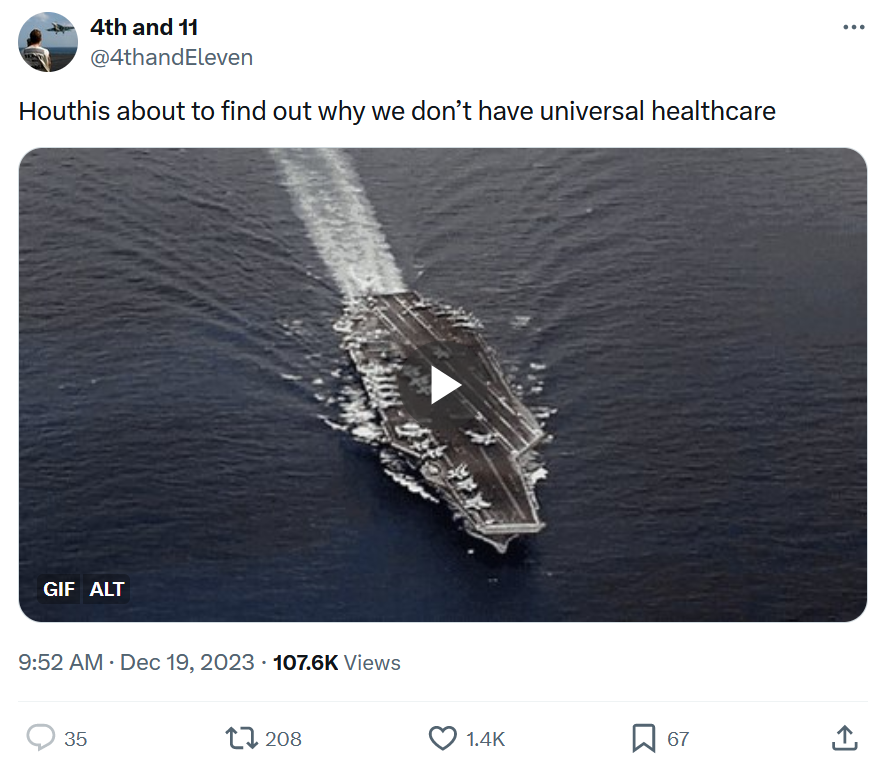I was talking to a friend recently about a conversation I overheard from two co-workers. One of them had attended Georgia Tech University (in Georgia, natch), the other had attended CalTech (although they were from NYC). The Georgia Tech student said “even though I’m from California, Georgia Tech was the more affordable option, so I went there.”
It’s an amazing statement, because many people who’ve gone to college would assume the opposite. Most states make a distinction between “in-state” students and “out-of-state,” with out-of-state students paying a premium on tuition. Many states also have special scholarships and funds only available for their in-state students.
You’d therefore think that a California student would find CalTech the more affordable option, since they’re both top-ranked schools and California should be providing in-state benefits that Georgia Tech doesn’t. But it wasn’t so for this student.
I told this to a California-based friend of mine who replied “I’m surprised they thought California schooling was more expensive, California community college is free.”
But I think there’s a disconnect between students and those outside the University system as to what constitutes “affordability,” and community college is one part of this disconnect. I won’t bury the lede too much: students don’t want community college because it doesn’t offer them what a proper college does. Making community college affordable doesn’t make college itself affordable.
There are a lot of reasons to go to college:
Gain skills
Gain experience
Build networks
Signal value
None of these are well-served by community college.
Gaining skills is the place where a community college should have the greatest value: a calculus class there should teach you the same things as a calculus class at MIT. Math is math, right? But the specific in-class material is only one part of the skill-building that students seek.
The “quality” colleges that students want to attend will be staffed by eminent professors who are on the cutting edge of research in their field. And yes, there is “research” in mathematics. Students don’t just want to learn the facts that were written down decades ago, they want exposure to the unexplored parts of their discipline so they can learn how to contribute themselves. So for any STEM student, just taking community college courses doesn’t really give you much “skill” in your field, because while you may have the book-learning, you don’t have any exposure or experience working on the cutting edge.
At a research university students can work in labs, attend conferences, hear seminars by famous professors, all things you can’t do at a community college. So really a community college cannot give you the skills that a “real” university can, it can only give you the knowledge base that you can then use later to build those skills.
Gaining experience is sort of different from skills. In both STEM and humanities, students will want some experience in their discipline of choice, both so they can make sure they actually like it and so they can better get a job right after graduation. Community colleges are usually overlooked by companies canvasing for interns, and for good reason since many of the students at a community college already have jobs. Likewise a community college will have a lot less clubs or professional guilds through which a student can find new opportunities for leadership or work.
So everything from internships, to student leadership positions, to funded fellowships is a lot harder to find at a community college vs a university. And for those reasons students who want experience will shy away from community colleges even if they are free.
Networks are again hard to build at community colleges. Harvard isn’t Harvard just because the students are smart, it has an enormous pull factor in part from the children of the rich and famous who attend there. At a tier-1 university you can rub shoulders with future CEOs and politicians. Even at a tier-2 or -3 university you can find future managers and leaders. Community colleges are largely attended by people who already have a job and are trying to upskill into a better one, and therefore don’t have the time or effort to network.
Community colleges also are largely attended by students who couldn’t get accepted anywhere else. And it’s sad but true, that most students who didn’t have the grades to go to a university likely don’t have the wherewithal to be future movers and shakers. So your networking opportunities are not great at a community college. Students who want to network will avoid them.
Finally, signaling value. It has become cliche to say that college doesn’t teach you anything and the only reason to attend is as a signal. I disagree with this, but it is true that college does act like a signal to future employers. By attending a “good” university, you show that you are skilled and capable, at the very least you were skilled enough to get in and graduate, so you can probably be trusted with an entry-level position.
Yet again this is something that community college just doesn’t provide. Community college is not a strong signal for employers, it is required to take everyone and employers are wary about the actual quality of the graduating students. Fairly or not, community college is not a strong signal, and so students who believe in the signaling theory will not want to attend.
I think everything I’ve written here is mostly a “duh,” but it still needs to be said. Because when the debate about the cost of university turns to “free community college,” we need to recognize that “there is a price cheaper than free.” Just because something is free doesn’t mean it’s the best option or truly the cheapest option. What you save in tuition, you lose in opportunities to network, to gain skills, to gain experience, and to signal your value.
Now you can still do all these things outside of a community college. You can network outside of college while taking free classes, find internships, become a local leader, etc etc. But all those things require a lot of time, effort, and frankly even money (travel for networking isn’t cheap). A university provides them along with your tuition. So this is what I mean about “a price cheaper than free,” community college classes may be “free,” but they don’t provide you with any of the benefits that people actually want from a university. And trying to match a university’s benefits alongside the free classes from a community college will usually end up costing more time and money than just attending the university instead.
Free community college was pushed as a solution for the college affordability crisis, but it really isn’t one at all.
Community college has a place, but it doesn’t provide what university students want at all. And that’s part of why California schools remain unaffordable, even for California natives, because the state is subsidizing what students don’t want while allowing costs to grow out of control on what students actually need. If California at least built a hell of a lot more housing, then cost of living would go down and the universities would become cheaper to attend by default. But I suspect more and more that the “quality” California universities will become a playground for the rich or connected, with much of the middle class going out-of-state instead.


